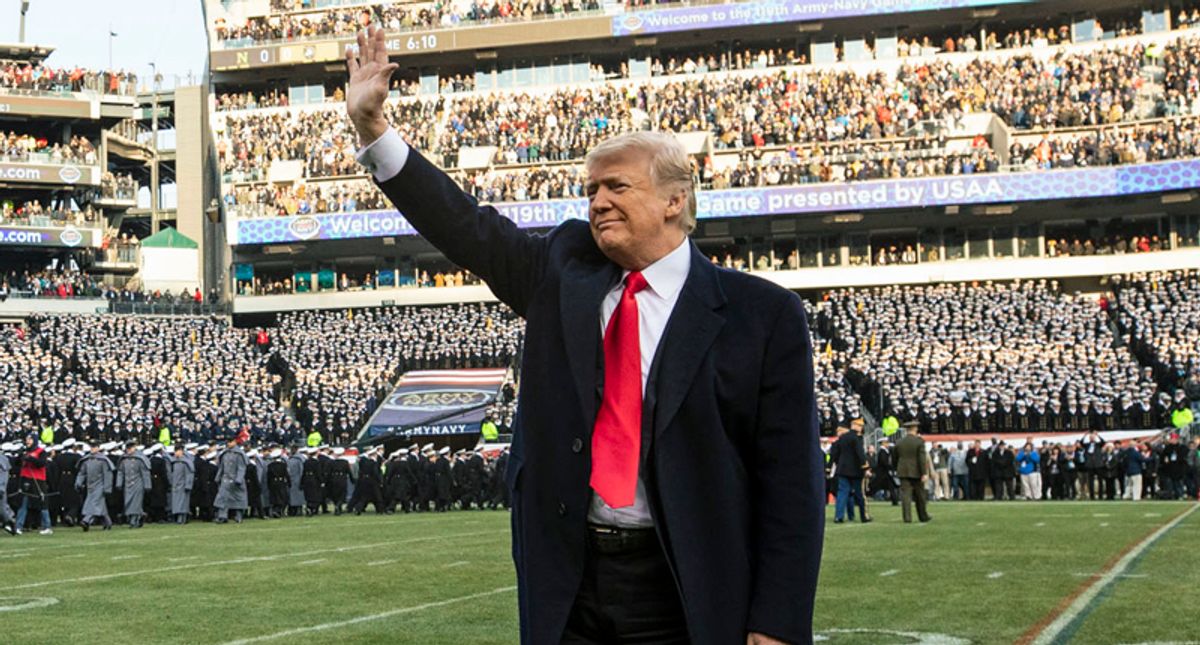
It was a numbers day in the Manhattan court deciding the fate of the Trump Organization, with staffers from Deutsche Bank on the stand to talk about their experience overseeing Donald Trump's loans, ABC News reported.
One of the details they revealed is that in 2014 Trump desperately wanted to buy the Buffalo Bills football team after Ralph Wilson passed away.
Attorney General Letitia James alleged that Trump grossly exaggerated his financial ability in his $1 billion bid to purchase the team, much in the same way he's accused of doing with other such deals. Up to $800 million could have been financed by the bank, but it needed a "confidence letter" to verify the deal.
POLL: Should Trump be allowed to run for office?
"Mr. Trump asked Deutsche Bank ... for that letter," the suit said, going on to say that Trump lawyer Jeffrey McConney met personally with Deutsche Bank staffers to navigate the deal in July 2014.
"Mr. McConney then certified as to Mr. Trump’s liquidity as of June 30, 2014, and that there had been 'no material decrease' from the 2013 Statement of Financial Condition figures previously certified by Mr. Trump," the suit continues.
"Mr. Trump’s bid package – which was partially successful, in that Mr. Trump did advance further into the bid process – included a letter ... indicating that based upon the bank’s review of Mr. Trump’s financial information he would have the 'financial wherewithal' to fund his bid to purchase the Bills football team."
Trump’s 2013 Statement of Financial Condition was an example of holdings that were "inflated pursuant to the deceptive strategies," alleged James. There he claimed a net worth of about $5.1 billion, but promised he was worth a lot more.
"Mr. Trump sent a separate letter, under his own signature, using an even higher figure in an effort to win the bidding: 'I have a net worth in excess of Eight Billion Dollars (financial statements to be provided upon request),'" the suit said.
While on the stand Wednesday, ex-Deutsche Bank executive Nicholas Haigh said that he turned down the loan saying it would add to the bank's financial exposure to Trump, ABC News' live blog reported.
"Deutsche Bank was not willing to increase its credit exposure to Donald Trump at that time," Haigh said.
But they did send a letter on his behalf, Haigh said, though all it would confirm is that the company was in compliance with the loans they had from Deutsche Bank.
"McConney verified that Trump had over $300 million in liquid assets in 2014, and that it suffered no material decrease in the value of his illiquid assets, according to a document entered into evidence today," said the report. They then issued a letter saying Trump had the "financial wherewithal" to fund his pledge.




